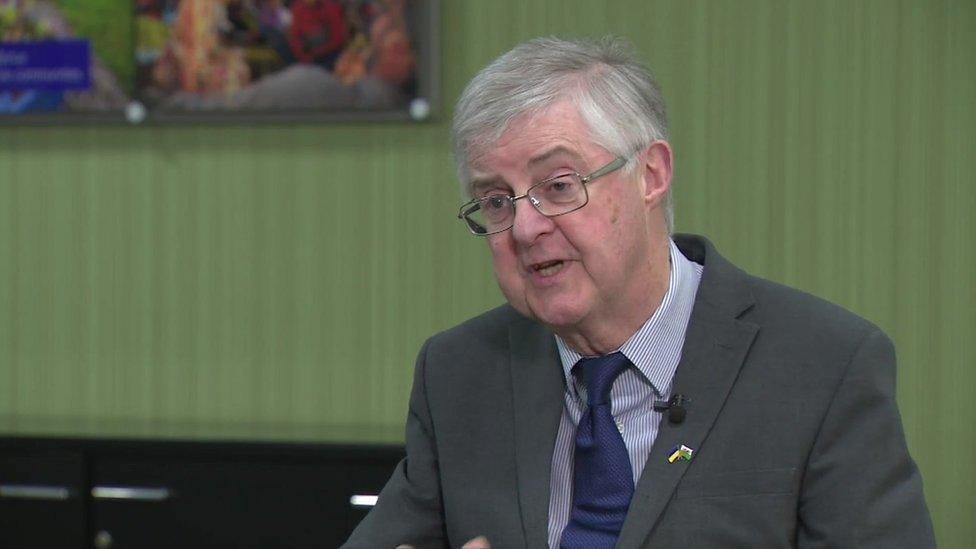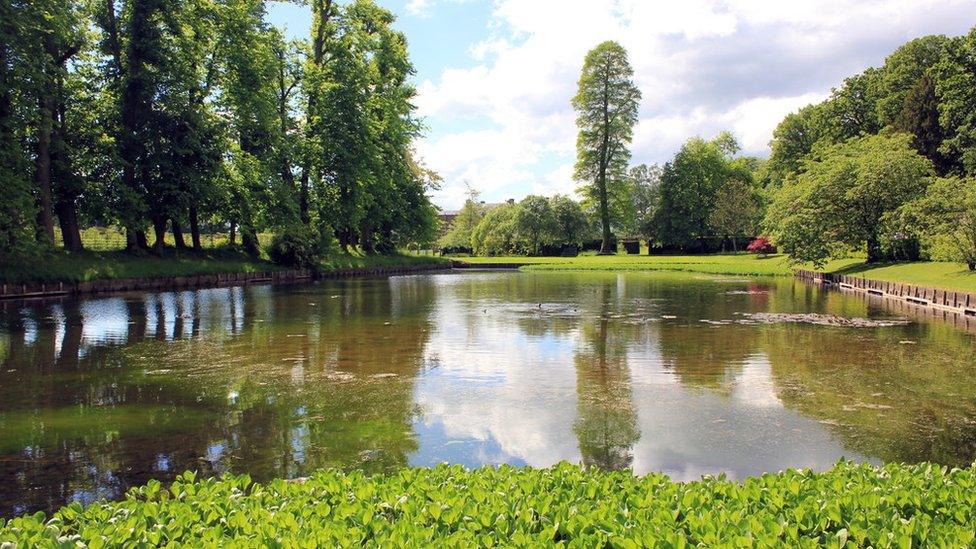Cost of living: Wales will stick together says Drakeford
- Published

People are being hit with soaring energy costs and rising household bills
People in Wales will stick together in the cost of living crisis as they did in the pandemic, First Minister Mark Drakeford has said.
Two years after the first lockdown, he said he admired the "solidarity" shown during the Covid crisis.
The anniversary is being marked as Ukraine is under attack and with rising costs threatening UK living standards.
"The year ahead is going to be a very challenging year for many people," Mr Drakeford said.
"When I look back at the coronavirus crisis, as well as immense sorrow at the lives that have been affected directly by it, I'm also really struck with admiration at the way in which people in Wales responded to it, at that sense of social solidarity that it drew out of people, the strength they were able to mobilise.
"I think we will see that same characteristic being mobilised to face the challenges of the next 12 months."
His cabinet will this week to decide whether to end compulsory masks and self-isolation.

Mark Drakeford and his cabinet are reviewing current Covid restrictions this week
The remaining Covid restrictions are due to lapse next Monday, but with cases rising once again, Mr Drakeford said his government was keeping its options open.
A decision is due to be made on Thursday.
The Welsh and Scottish governments had called on the UK government to continue to fund a mass testing system, but it is due to end in England in April.
Lateral flow tests will continue to be available for free in Wales until June.
Going beyond that date would divert money from other services, Mr Drakeford said.
"But I am genuinely worried that across the United Kingdom the relaxation of rules on international travel, for example, and the lack of testing capacity does leave us vulnerable to not spotting when there are sudden flare-ups of coronavirus or when a new variant emerges."

Wrexham's Erddig country estate is among three sites now chosen for commemorative woodlands in Wales
The first minister has also announced that Wales' third commemorative woodland, to remember lives lost to the pandemic, will be at Cwmfelinfach in Caerphilly county.
It is hoped the site, alongside the two others - at the National Trust Cymru's Erddig Estate in Wrexham and at Brownhill in Carmarthenshire's Tywi Valley - will be places of quiet reflection for families and friends to remember lost loved ones.
"It has touched our lives and everyone has made sacrifices," said Mr Drakeford.
"These woodlands will be a permanent and living memorial to all those who have died. They will also be a symbol of the strength the people of Wales have shown over the past two years."
In his BBC interview, Mr Drakeford stood by his criticism of the UK government's handling of coronavirus, despite studies showing Wales and England suffered similar levels of excess deaths, or the number of people who died above a five-year average.
An Office for National Statistics report, external published on Wednesday estimates excess deaths were lower in Wales than England.
Another worldwide study, published this month, said England fared marginally better, external.